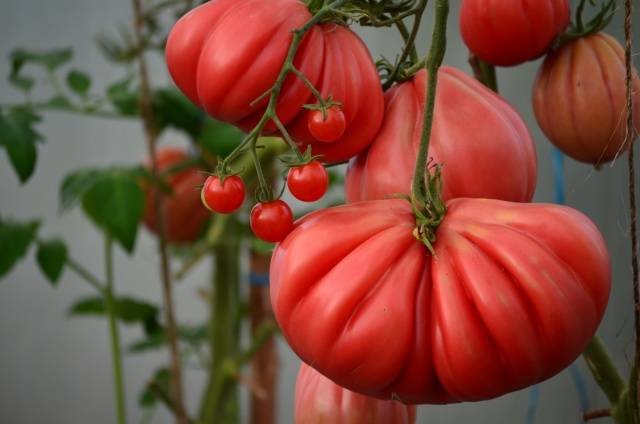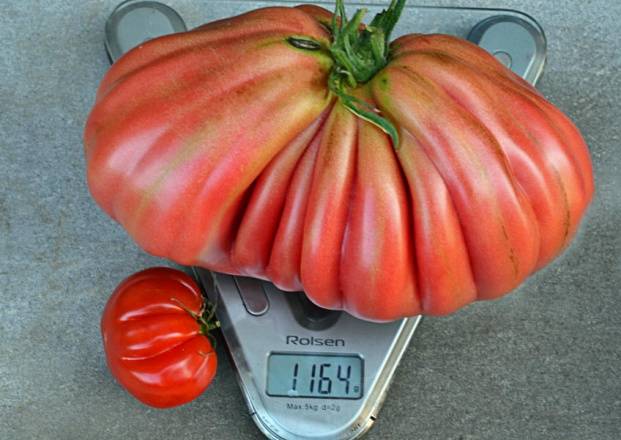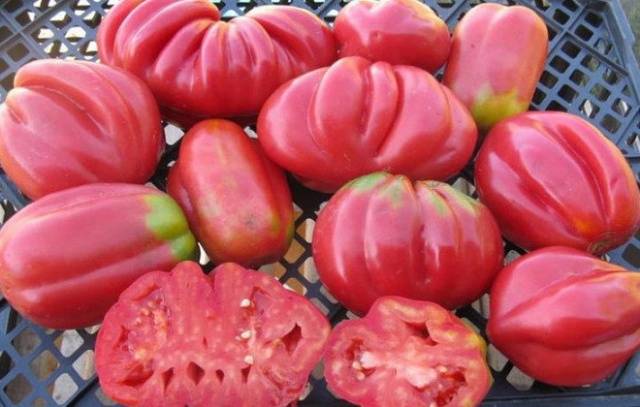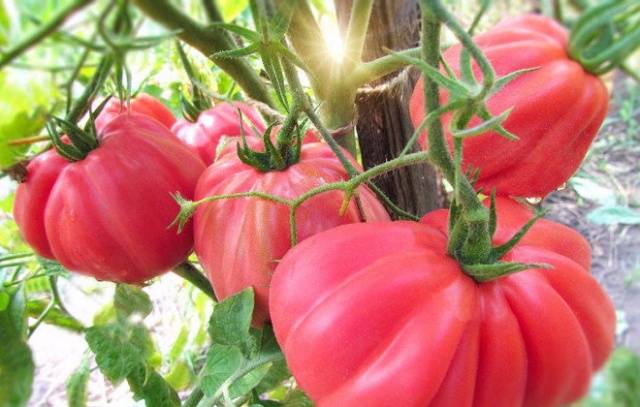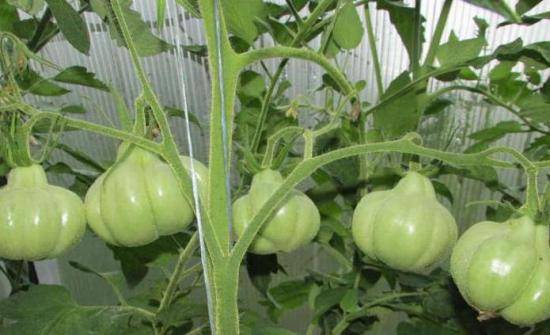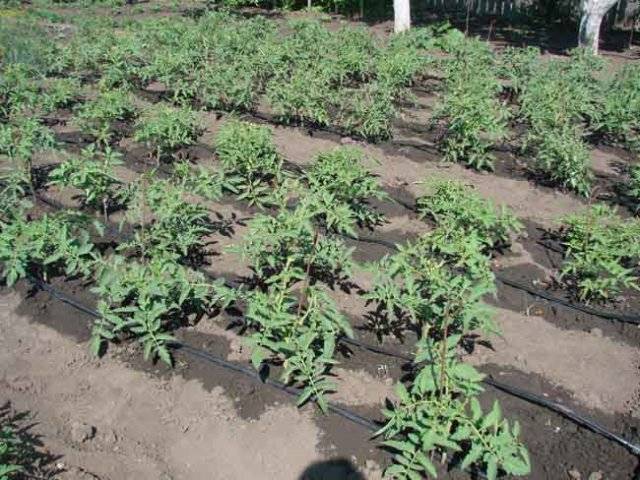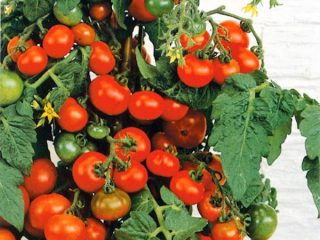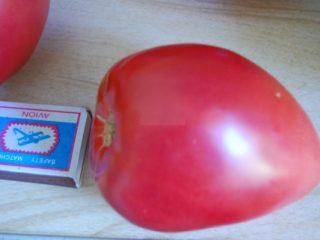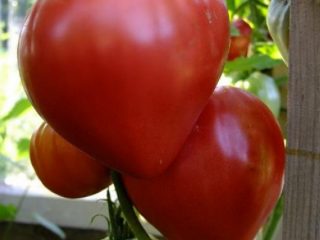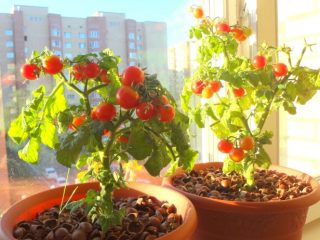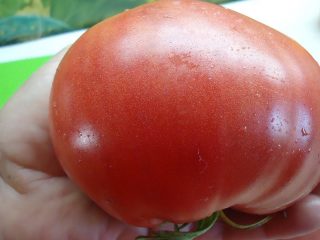Content
Fans of the exotic and delicious taste of vegetables will certainly enjoy the Pink Fig tomato variety. It was bred by Russian breeders several years ago and managed to triumphantly visit all gardeners who are interested in new products. Harmonious, sweetish, with subtle fruity notes, the taste of the fruits of this variety of tall tomatoes makes one remember the amazing and delicate subtropical fruit that shared its name with the new plant.
Like its namesake, the Pink Fig tomato bush is a favorite of the sun and fertile soil, therefore it perfectly reveals all its valuable qualities only in a greenhouse or in the southern regions in open ground.
Description of the variety
The tomato plant Pink Fig is indeterminate, spreading, can rise to a height of up to 3 m. Its stem is strong, thick, and branches well. Young stems and leaves of tomato are very pubescent, which is why they acquire a greenish-gray color. The large leaf blade is more intensely colored on top, and pale below. The edges of the sheet are carved.
The bush of this variety grows quickly, the mass of greenery is moderate.Tomato clusters bear 3-5 fruits. The lower branches of the bush bear larger fruits. The formation of inflorescences continues throughout the season, so the plant’s productivity is high.
The fruits of this variety are large, can weigh 300-800 g, the average weight is 200-450 g. In reviews of gardeners on the Internet, there is a mention and photo of a record: the fruit of this variety weighs more than 1 kg, grown in a greenhouse. One plant can produce up to 6-7 kg of selected pink, juicy berries with a soft fruity taste without sourness. The fruits of the Pink Fig tomato are distinguished by strong ribbing; they are flat-round in shape, slightly elongated towards the stalk - pear-shaped. Rather, they are vaguely similar in outline to the fruit of a real fig. Dense, fleshy pulp. The skin is just as dense: although it is thin, it has the valuable property of not cracking.
There are many seed chambers, the grains can be collected for the next sowing. The fruits of these tomatoes are picked and browned; they ripen well indoors without losing their taste. The huge pink berries of this magnificent variety of mid-season tomatoes are transportable. These tomatoes are used in fresh and canned salads, and juice is made.
Advantages and disadvantages of the variety
Without a doubt, pink fig bushes require close attention. But tomato fruits captivate with their originality and unusual taste. Therefore, amateurs should try to plant this demanding variety of tomatoes, carefully familiarizing themselves with its advantages.
- The value and originality of the variety are delicious fruits, where sugar content predominates, and the unusual shape of the berries;
- The productivity, which is based on the duration of fruiting of the tomato bush, is very high: many fruits are set, and they all grow large;
- Complex plant resistance to viral and fungal diseases;
- Universal purpose of tomato fruits Pink figs.
Apart from the care that tall tomato bushes need, this variety has no drawbacks as such, except for one: small voids form in the ribbed fruits.
Features of cultivation
When growing Pink Fig tomatoes, special attention should be paid to several care items.
- The heat-loving plant requires cultivation in greenhouses. Only in the south of the country can it be planted in gardens;
- A tall tomato bush needs to establish strong supports, form and tie up branches with large fruits;
- The plant needs regular feeding for proper development;
According to reviews from those gardeners who planted Pink Fig tomato bushes, tempted by the description of the variety and photos on various sites, using only their previous experience, the result was disappointing. But by following the recommended agricultural practices, the second time they managed to grow pink tomato fruits that fully met the characteristics.
First stage: sowing seeds
To prepare the soil in which seedlings of tall tomatoes will grow, usually take two parts of garden soil, mixing half with humus and river sand. There are recommendations to prepare identical soils both for boxes with seedlings and for greenhouses where bushes will grow. In this case, plant adaptation will be painless.
Branded seeds of this tomato variety come to the retail chain already processed, so they are simply placed in containers, lightly sprinkled with soil, moistened, covered with glass or film and kept warm - up to 230 C. The optimal sowing time is the second ten days of March. We must also count on the fact that the sprouts will be planted after two months.
Seedling care
Tomato plants Pink fig are moisture-loving. The soil is regularly watered with warm water - up to 200 C. It is advisable to avoid getting drops on the leaves. For the first three weeks, seedlings must be illuminated during the day. In the phase of two true leaves, picking is carried out and tomatoes are planted in separate containers. The plants take root in about two weeks, after this period feeding begins.
For seedlings, it is best to use special complex mineral fertilizers: “Sudarushka”, “Kristalon”, “Master”, “AgroMaster”, “Kemira”. Young plants are also fed with potassium monophosphate: 1 tbsp. spoon of the drug per 10 liters of water, or superphosphate.
Plants in a greenhouse
Strong, healthy tomato seedlings, 30-35 cm high, on which there are at least ten leaves, the rudiments of the ovaries appear, and are transferred to the greenhouse. This process usually occurs in mid-May, when the soil warms up. The soil is watered with solutions of copper sulfate or potassium permanganate to remove lurking pathogens. When planting, take into account the rather lush growth of the tomato variety Fig Pink. The distance between the holes is sufficient: 50 cm.The calculation is also carried out in this way: if a tall tomato bush is formed into two stems, per 1 sq. m 3 plants are planted. And accordingly, four single-stem bushes can be planted in this area.
Immediately install supports for pink Fig tomato plants if there are no perennial trellises in the greenhouse. As the bushes grow, the branches are carefully tied up. Particular attention is paid to the lower branches of the bush with the largest fruits, checking the strength of the garters and supports so that the plant does not break. After the second or third brush, the lateral processes that appear are removed.
Tomatoes of this variety are watered with warm water, its optimal temperature is 200 C. An important feature of care is watering at the root of the plant so that the soil does not erode and water does not fall on the leaves and stems. Moisture is best distributed using a drip system. Uniform moisture is especially important for each tomato bush during fruit ripening. After watering, the greenhouse must be ventilated so that favorable conditions for the formation of rot are not created. Dried soil is loosened and removed weeds. During the season, tall tomato plants need to be fed 3-4 times with potassium and phosphorus fertilizers.
Pest and disease control
For Pink Fig tomato plants grown in a greenhouse, prevention of fungal infections is necessary. For this purpose, spray the bushes with the drug “Fitosporin” according to the instructions. Insect pests are gotten rid of using a weak solution of potassium permanganate. If the leaf damage is large, insecticides are used.When the fruits ripen, tomato bushes are sprayed with decoctions of plants that repel whiteflies, aphids or spider mites: yarrow, chamomile, celandine, marigolds, onion peels. A nematode that attacks the roots of a tomato bush can be fought by disinfecting the soil with strong poisons.
Tomato bushes will thank the gardener for his care with a good harvest. They are not that picky, and pleasure from the work done is guaranteed.
